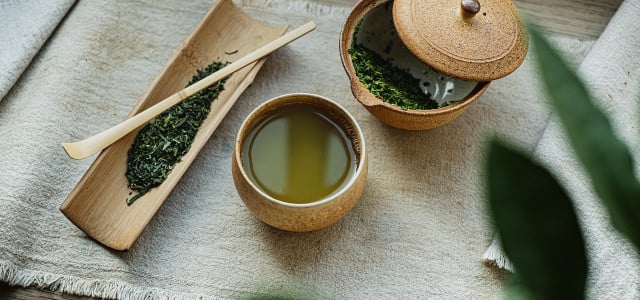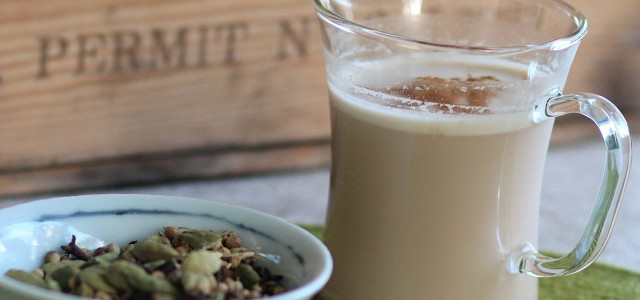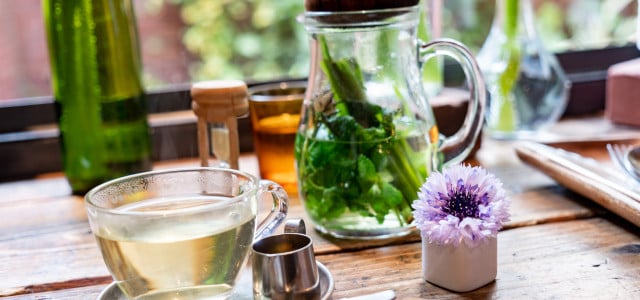You might be unsure what the differences in white tea vs. green tea are: Which is healthier, more sustainable, and what exactly is the difference? Read on to find out.
Like all tea, white and green tea come from the Camellia sinensis plant. They are both processed much less than darker teas like black and oolong tea, which makes them more sustainable options. Here are the main differences:
Availability
- Green tea is grown all over the world, and therefore also widely available. White tea is a bit harder to find as it’s grown mainly in the Fujian province of China as well as in India and Sri Lanka.
- Another reason for the difference in availability is that green tea can be easily packaged in tea bags, whereas white tea usually doesn’t come in tea bags.
- Because green tea is so popular, it makes it easier to find organic, local green tea, which has a smaller carbon footprint.
Flavor
- In terms of taste, green tea typically has a stronger flavor. While both teas are very fresh and lightly sweet, green tea has a range of other flavors smokey, nutty, vegetal, and toasty.
- White tea is very light compared to green tea. The high quality Silver Needle white tea, for example, is known for being one of the lightest teas in the world. White teas which are a bit more yellow in color may have hints of flavors like hay and even some spice.
- Tip: You also have some control over how your tea tastes in how you brew it at home. You can make your tea hot, iced, or even brew it cold. While some green teas can be used to make lattes, white tea should not be used in this way. Adding milk, sugar, lemon or other flavoring can overpower the flavor of the white tea itself – better to enjoy a high quality white tea in its pure form!
White Tea vs. Green Tea Processing
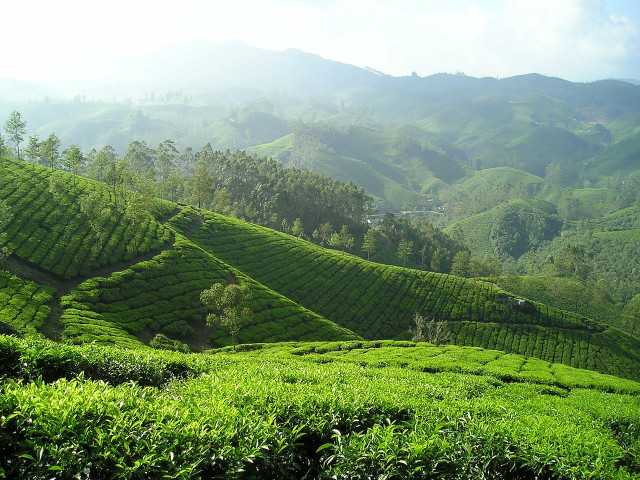


(Foto: CC0 / Pixabay / Simon)
White and green tea are processed slightly differently:
- White tea is harvested from the first bud of the tea plant, withered outdoors, and then dried out and sorted. It can only be harvested in the spring and very early summer.
- Green tea, on the other hand, is a bit different. It is harvested from the following two buds in spring, summer or fall, and it has a few more steps involved in the making. It is first withered outdoors, and then must be processed to stop oxidation, before drying and sorting.
In short: the processing or white tea is gentler than that of green tea. This might also be the reason for its added health benefits.
Benefits of White Tea vs. Green Tea
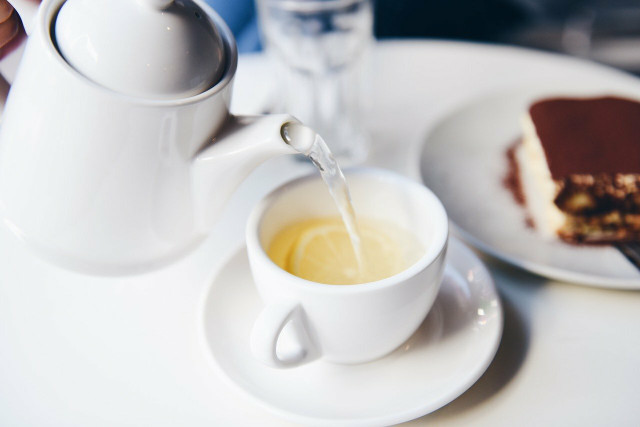


(Foto: CC0 / Pixabay / StockSnap)
Both teas are rich in antioxidants and for the most part, share the same health benefits. The antioxidants in the teas benefit immune systems and protect your body from free radical damage. Antioxidants also been shown to boost fat oxidation, breaking down fatty acids, and therefore help burn fat.
Both green and white tea can be good for your teeth, too. The catechins in green and white tea help prevent plaque build-up and cavities. Not to mention, catechins can decrease your risk of heart disease and stroke. The catechin content of white as well as green tea varies hugely, however, so it’s impossible to tell which tea might be better for your teeth.
White tea vs. green tea: Which is healthier?
This question is impossible to answer. The various health benefits depend on where the tea leaves come from, their quality, the processing and preparation as well as your general health and lifestyle.
Caffeine Levels in White Tea vs. Green Tea
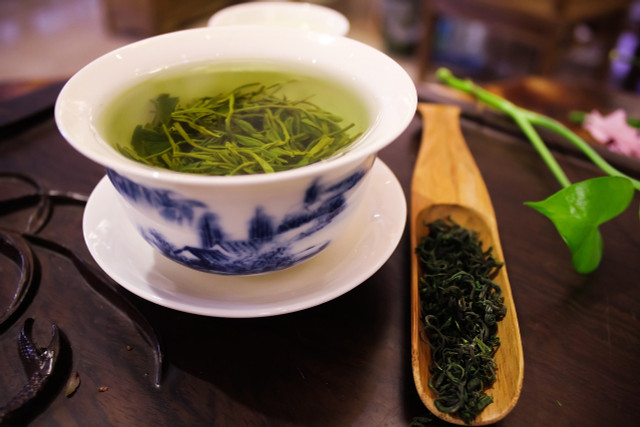


(Foto: CC0 / Pixabay / appledeng)
Though white tea is considered a low-caffeine drink, this is a myth. While both white and green tea have much less caffeine than coffee, white tea does sometimes have more caffeine than green tea or even black tea.
It is not necessarily the type of tea that determines the caffeine level, but rather a variety of factors, including the growing conditions, harvesting time, harvesting method, processing methods, and brewing method. If caffeine level is important to you, simply check the packaging information when making a tea purchase.
To learn about how decaf green might help you, check out our article Decaf Green Tea Benefits for Your Health & the Best Alternatives.
Read more:
- Yellow Tea: Production, Health Benefits and Uses
- Is Chai Tea Good For You? What You Need to Know
- Matcha vs. Green Tea: What’s the Difference?
- The Benefits of Ginger Tea: How to Make a Healthy Infusion
Do you like this post?






